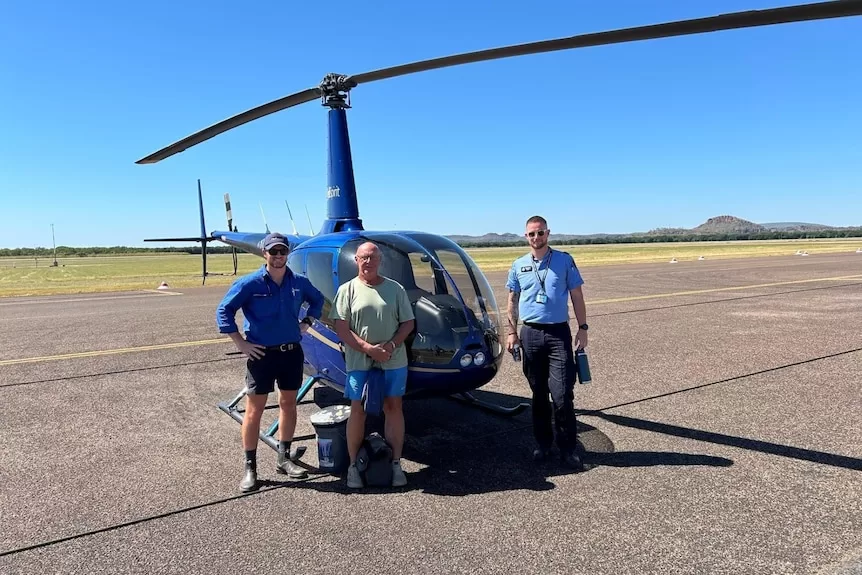- In short: Authorities are urging tourists to properly prepare for remote dry season travel after tourists were rescued in the East Kimberley last week.
- The man and his passenger were stranded for two days in the remote area before being airlifted by police.
- What’s next? Authorities are urging travellers to pack enough supplies and tell others about their movements when visiting the region.
Travellers set to explore one of northern Australia’s most renowned tourist destinations are being urged to properly prepare for remote travel as the Kimberley region welcomes visitors for the dry season.
On Sunday, Kununurra police rescued a tourist and his passenger by helicopter after they became stranded for two days in a remote area of the East Kimberley.
John Small’s vehicle broke down after travelling through floodwater on the Duncan Highway, where he managed to contact authorities through the SOS mode on his phone.
Mr Small said he packed enough food and water to last 10 days and, after his experience, urged other visitors to check road conditions ahead of travel.
“I would go and check with the local police to see what was open and what was closed … always carry extra water and always carry some tucker,” he said.
Kununurra Acting Officer In Charge Gerard Gibson said Mr Small was stuck in an area where no other vehicles were passing through.
He said the Kimberley landscape was unlike anywhere else in the country and required extra precautions.
“People may underestimate the conditions, temperatures, vastness. So we ask people to do as much research as they can about where they’re travelling,” Senior Sergeant Gibson said.
Travellers urged to stock supplies
Sergeant Cameron Willis is a Kimberley police officer and also works as a search mission controller in land search operations.
As tourists descend upon the region, Sergeant Willis said it was important for travellers’ vehicles and communication systems to be prepared ahead of their journey.
“Carry enough water and supplies, always let someone know where you’re going and. if you can, carry a personal locator beacon, which activates a GPS signal that goes off to AMSA, which is the Australian Maritime Safety Agency,” he said.
A majority of the West Kimberley’s national parks reopened for the season this week after major closures last year due to a one-in-100-year flood event.
Department of Biodiversity Conservation and Attractions parks and visitor services regional leader Sarah Mullineux said people venturing on hikes needed to take extra care as well as being croc-wise.
“For most of them you’re walking through riverbeds sometimes, uneven surfaces, even clambering over rocks to go through a trail and experience an amazing sight,” she said.
“So just being really prepared, sun smart, and considering the heat risk.”
Beautiful but remote
Sergeant Willis said while the Kimberley was a beautiful part of the world to explore, the remoteness and lack of knowledge were often how people ran into trouble.
“Sometimes it’s hundreds and hundreds of kilometres between certain towns and if you get off the beaten track from where people normally go, then you’re by yourself and you can get stuck,” he said.
As someone who enjoys maps and searching vast landscapes, the role is an enjoyable line of work for Sergeant Willis. But he said nothing was more rewarding than locating a person who had become lost.
“Finding someone who’s lost and in distress and getting them back to their families is a really big thing,” he said.
Get our local newsletter, delivered free each Tuesday
